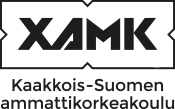Administration and legislation (5 cr)
Code: YT00CV28-3003
General information
Enrollment
09.08.2021 - 05.09.2021
Timing
01.09.2021 - 31.12.2021
Number of ECTS credits allocated
5 op
Mode of delivery
Contact teaching
Campus
Mikkeli Campus
Teaching languages
- Finnish
Seats
20 - 40
Degree programmes
- Master's Degree Programme in Environmental Technology
Teachers
- Hanna Jylkkä
Teacher in charge
Hanna Jylkkä
Groups
-
YTMI21SYEnvironmental Technology, master studies
Objective
During the course you get familiar with the current communal controlling systems, regulations including environmental policy / strategies, monitoring programs, environmental permits, and economic instruments. Your also deepen your skills in a variety of the environment and environmental health actions and tools. In addition, you familiarize yourself with the environment and health organizational structures and future development needs.
Weekday-based study path
You take part in the weekday-based teaching and tutoring. You study according to the group timetable and do the given homework independently.
Time-saving path
You study independently the material of the course and do the required learning tasks and/or take the exam. If you have earlier knowledge about the subject you can show your knowledge as agreed with your teacher.
Work-integrated path
If you are working during your studies you may be able to do some of your studies integrated with your job. You must talk with your teacher about this and find a suitable developing project at your work place. You have to include theoretical knowledge in your studies. You show your knowledge so that the aims of the course will be fulfilled.
Content
What are the various government actors and their roles?
What are the main laws and regulations, reforms?
What is the international environmental law and its importance in the national legislation?
What is the basis for administrative decision-making?
What are the controlling tools in the communities?
Evaluation scale
1-5
Assessment criteria, good (3)
a) find, study, produce and evaluate critically multidisciplinary data in their field of expertise.
b) solve demanding problems in research, development and innovation
f) work independently in the expert duties of their professional field or as entrepreneurs.
g) communicate proficiently and systematically in their spoken and written native language and in one foreign language
Qualifications
Bachelor’s thesis in a suitable field.
